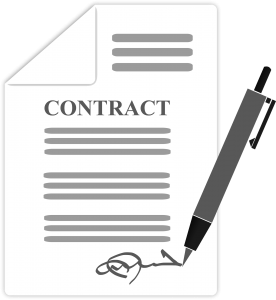
You have an athlete you’ve been working with for a while now. They’ve not always been the most consistent, but they usually get most of their workouts done. Each week, you email or text to check in and you get a response 70% of the time.
Fast forward a few weeks, and now the athlete is barely doing workouts and your emails and texts go unanswered. Then, soon after, even the workouts stop getting done. You wonder what’s going on when the answer hits you. You’ve been ghosted.
You look back over your communications with the athlete, searching for signs of what went wrong. You scour workout histories and race results. In the end you are still left scratching your head and wondering if you could have done something different, and not only have you lost an athlete, but your self-confidence probably took a hit, too.

The truth is, chances are that you did nothing wrong and neither did your athlete – at least from a coaching standpoint. Oftentimes the problem begins before you even sign the athlete on. There are a few things you can do to hopefully avoid circumstances that allow for ghosting to happen.
It starts with the initial contact. Whatever method you use to fill your athlete pipeline, you can have multiple points at which you can use effective interviewing questions to gather information and create an athlete profile.
Have a few key intake questions attached to your contact form or scheduler that the athlete has to fill out before confirming an initial consult. Ask things that are absolute deal-breakers for you. Questions that clearly reveal a discrepancy in philosophy or show that this may not be a good athlete/coach relationship could save you trouble down the road. Based on the athlete’s answers, you can either do some follow-up questioning to dig a little deeper or send a respectful reply in which you explain that your roster is currently full, and you are not taking new athletes at this time. Be sure to have a network of coaches that you can refer them to so you can end the communication on a positive note.
If an athlete answers the initial questions and you determine that the relationship might be a good fit, go ahead and book that consultation. It is during this consult call that you will have another opportunity to ask questions. It is important for you to understand that you are interviewing the athlete, not the other way around! It is YOUR business, and you determine who you work with.
When interviewing an athlete be sure to ask them how much they value communication and what their preferred method of contact is. Also ask what he or she thinks a coach does, what they expect from a coach, and what he or she thinks you will expect from them as an athlete. Questioning like this will help you establish a good foundation with an athlete and will also point out some red flag behavior.
Finally, have a clause in your athlete/coach contract that clearly states what you consider ghosting to be in terms of communication and getting workouts done and what the consequences of those actions (or inactions) are. Be sure to stress to the athlete to read the entire contract before signing it. You can also add spots for the athlete to initial (next to the points of the contract that might get “skimmed”) so you can later point out to them that he or she agreed to these points if the need arises.
Ok, so you’ve done all your questioning and the athlete has signed the contract, and you determine you are going to start working together. A few months down the road you begin to see early signs of ghosting behavior. What can you do to mitigate the situation before you have to enforce the contract clause?
If the athlete is still communicating with you at all, you can use some motivational interviewing to see if you can figure out what is causing the ghosting behavior. Does he or she have family issues going on that is preventing workout compliance? Could he or she be sick, injured, or burned out? Have the goals changed? Does the athlete just not want to run anymore?
Use the answers as a guide to change the plan going forward, or to gently end the working relationship if that is what the athlete needs. Try not to take anything personally – life is organic and dynamic and sometimes things happen that require the athlete to redirect his or her attention and focus less on running.
If all communication from the athlete has ceased yet they are still doing their prescribed workouts, you will have to decide whether or not to keep them on your roster. While your job as a coach is to provide your athletes with workouts tailored to get them fit and ready for their goal races, it can be very difficult to assess progress and recovery without their input.

If communication has ceased AND the athlete is not compliant in his or her workouts, then it might be time to enforce the contract. If you need to take this action, be sure to outline in your final email any attempts by you to contact them, note the prescribed versus missed workouts, and state your intention to terminate the contract (include the exact date and remind them of the contract clause regarding ghosting).
Every coach hopes to avoid encountering a ghost athlete, but the reality is that we will all most likely have at least one during our coaching careers. Use these tips to refine your athlete on-boarding and remember that each athlete, from the 100% compliant to the ones that disappear, will teach us something about ourselves and our methods. Find the positive in each relationship, and you will become a better coach and a better person.
Happy coaching!!










